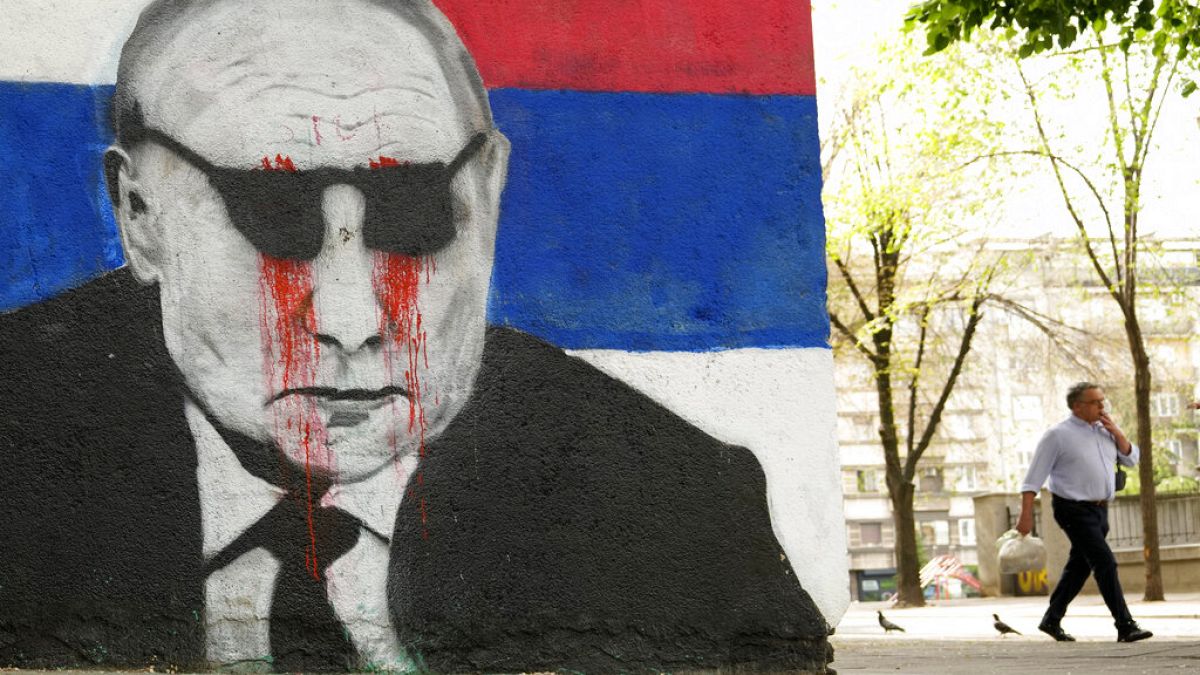Spillover from Moscow's invasion of Ukraine has made Russian society far more insecure, researchers found.
The Ukraine war has made Russia less safe, according to a recent report.
The Armed Conflict Location and Event Data Project (ACLED) found there had been a rise in "increasingly deadly" incidents inside Russia, such as escalating cross-border violence, drone attacks and wider instability.
Moscow's war in Ukraine, launched in February 2022, has had "multi-faceted and far-reaching" consequences for Russia's domestic security, wrote the US-based NGO.
"Since the beginning of its full-scale military invasion in Ukraine, Russian authorities have pursued a strategy that sought to preserve a sense of normalcy in Russian society and convince the population that the invasion would not have any repercussions on safety," it said.
"However, just as the Russian-Chechen wars ultimately resulted in militant attacks on Moscow and other cities in the early 2000s, Russia’s invasion of Ukraine has spilled over deep into Russian territory, undermining the government’s promises."
ACLED data indicated that cross-border violence between Ukraine and Russia rose between May and October 2023, amid the launch of Kyiv's summer counteroffensive.
Dozens of civilians in Russia’s border regions have been killed by shelling, while incursions by armed groups have amplified insecurity, it noted.
In May, Russia's southern Belgorod region was hit in a two-day raid by anti-Russian forces from Ukraine - the biggest since the war began. Kyiv denied any role in the violence, casting it as a domestic issue.
ACLED noted that almost 2,000 shelling incidents were recorded in Russia's three border regions - Belgorod, Bryansk, and Kursk - from April 2022, reportedly killing 70 civilians.
The organisation also documented that Ukrainian drone attacks have surged since May 2023, penetrating deeper into Russian territory and "damaging the country's reputation, military and infrastructure."
Between April 2022 and October 2023, ACLED recorded more than 440 drone attacks on Russian territory, plus a further 250 events in which unmanned aerial vehicles were intercepted by air defence.
The number of such reports has been steadily increasing since the end of May, it added.
Such strikes have mainly targeted oil and gas infrastructure, the NGO said, pointing to a broader "destabilisation" of internal security.
The Kremlin was hit by an alleged drone in May, though the US-based Insitute for the Study of War claimed the incident was "likely staged" to "bring the war home".
In its report, ACLED pointed to "other, less visible, effects" that are likely to impact security in Russia in the long run, including pro-Ukrainian partisan groups, easier access to weapons, and the intensification of state violence against anti-war voices.
It claimed security in Russia was "unravelling from within".
The Wagner Group's mutiny in June - which saw the Russian mercenary group march on Moscow, but was eventually called off in a deal with Vladimir Putin - revealed Moscow's "inability to control the internal situation", wrote the ACLED.
Though it may have rallied the establishment around Russia's president, it alleged Russian authorities are struggling to maintain popular support for the invasion, even among nominally loyal groups.
ACLED said its data shows that at least some Russian citizens refuse to "toe the government line", suggesting some were complicit in directing and evening operating Ukrainian drones towards targets within Russia.
It further highlighted to the "more frequent" arson attacks against recruitment centres, especially after the partial mobilisation was announced in September 2022.
The ACLED report comes off the back of research, published in September, that ordinary Russians are increasingly feeling the pinch and seeing a more gloomy future due to the fallout from Moscow's invasion of Ukraine.
